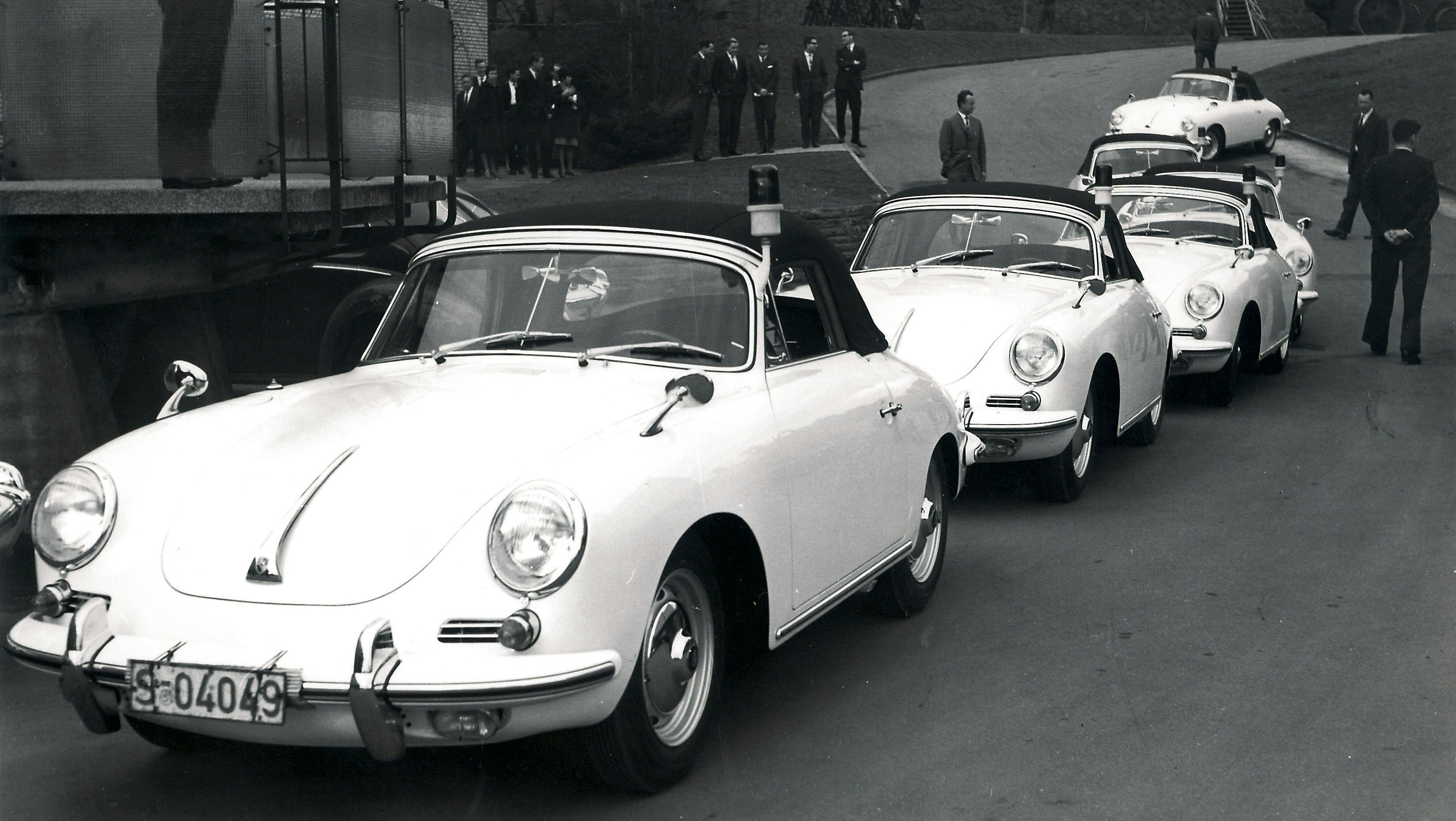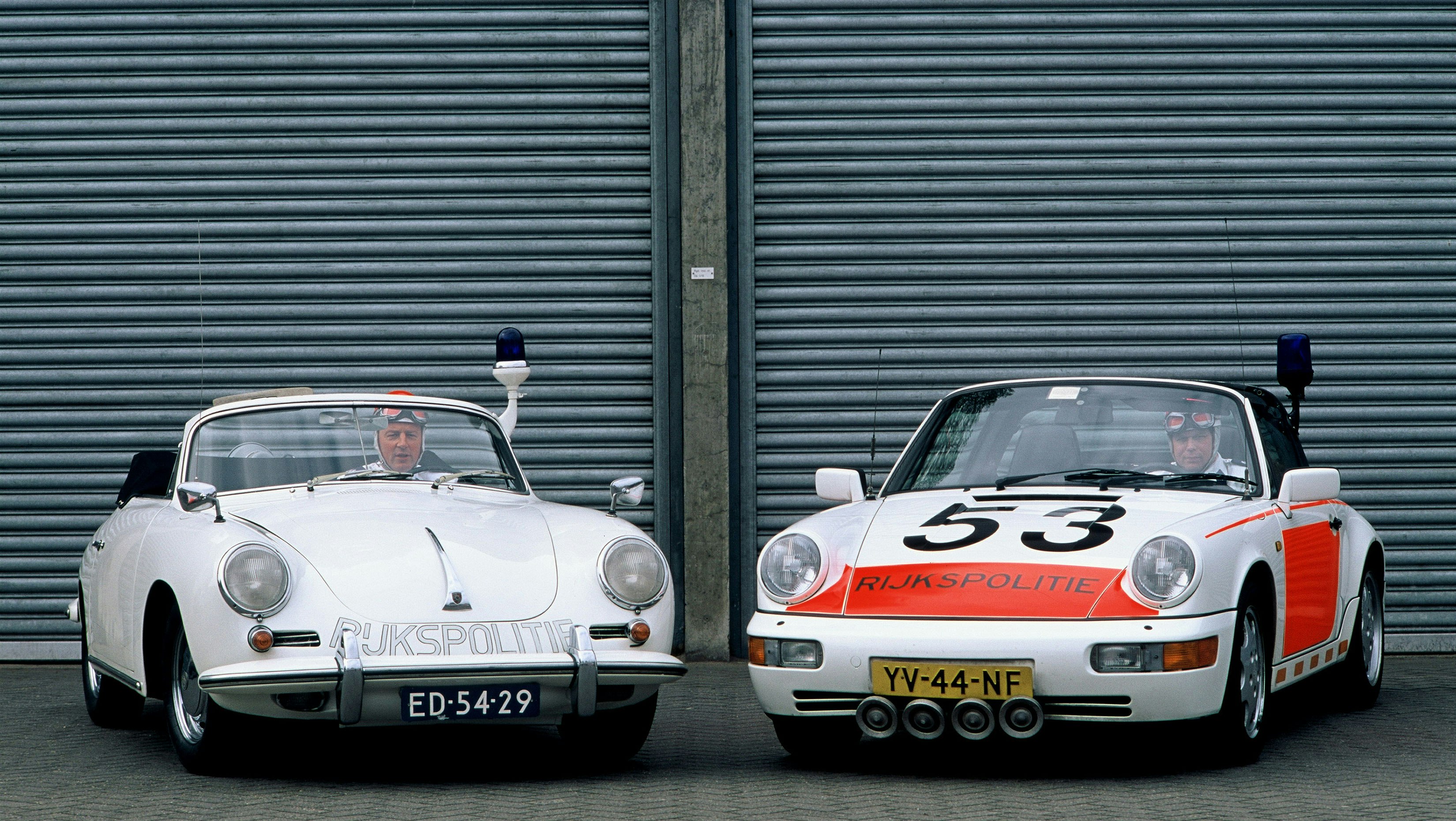How the Dutch Police Became Porsche's Dream Client for Over Three Decades

For more than 30 years, the Dutch Police Force had a unique relationship with Porsche, characterized not only by the acquisition of high-performance vehicles but also by a distinct need for specialized features in their patrol cars. The journey began in the early 1960s—a pivotal decade for Dutch traffic as unrestricted highways led to an alarming rise in accidents. To combat this, the Dutch police sought vehicles that could respond rapidly and effectively to emergencies. Their solution? The Porsche 356 Cabriolet.
The Birth of a Dutch Police Car Legacy
The decision to collaborate with Porsche was driven by specific requirements that other manufacturers struggled to meet. The Dutch traffic police needed a vehicle that could accommodate an officer standing up to manage traffic while remaining inside the car. The clever design of the Porsche 356 Cabriolet provided the perfect answer. With its open-topped layout, the officers could maintain a high-speed chase or manage traffic without the constraints of a closed vehicle.

The allure of the 356 was not just functional; it also represented a sense of pride for the officers. Initially, these patrol Porsches cleanly embodied their mission in pure white paint, with minimal identification apart from the large letters spelling "Rijkspolitie" emblazoned on the front. A light pole attached to the windshield and a siren on the rear deck transformed the sleek sports car into a legitimate symbol of law enforcement on the highways.
Comfort in Uniform: The Officers’ Experience
The Dutch police, much like their motorcycle counterparts, donned leather riding gear, making them a striking sight as they cruised in their Porsches, often with the top down—whatever the weather conditions. However, the end of the 356’s production in 1966 didn’t spell the end of the Dutch police’s love affair with Porsche. They quickly scooped up the last ten units as they understood that the Porsche 911, though already on the market, simply didn’t cut it in terms of their quirky specifications due to its closed coupe form.
A New Era with the Targa
The 911 Targa, introduced in 1967, would ultimately become the successor to the 356, offering that much-needed open-top capability for the officers. The Targa featured an innovative removable roof section, allowing for improved visibility and functionality while maintaining the power and performance characteristics that made Porsche legendary.

Over the years, the Dutch police fleet comprised various Porsche 911 Targas across different iterations, notably progressing through the G-Series, 964, and 993 generations. They even dabbled with a few 914s and 924s along the way, showcasing a remarkable commitment to keeping the fleet high-performance and agile.
The Decline and Legacy of the Fleet
However, as the highways evolved, so too did the traffic laws. By 1996, tighter speed restrictions and budget constraints led to the disbanding of the world’s largest Porsche police force. The officers were forced out of their beloved Porsches, replaced by more budget-friendly options like BMW or Audi.
A Nostalgic Look Back
Despite this transition, the legacy of the Porsche police cars lives on. Many former police vehicles were preserved and might be spotted in collector’s hands or at classic car shows. For those with an insatiable desire for nostalgia, a 1992 Porsche 911 Targa from the Dutch police fleet is currently available for sale at the enticing price of €139,911, allowing enthusiasts to relive a piece of law enforcement history.

The Unforgettable Partnership
This unique partnership between the Dutch police and Porsche stands as a fascinating chapter in automotive history. Not only does it point out the ingenuity and foresight of the Dutch police, but it also highlights Porsche’s adaptability to fulfill specialized needs. For generations, the sight of a Porsche on patrolling duties engendered a sense of safety as well as a hint of speed and excitement on the roads of The Netherlands.